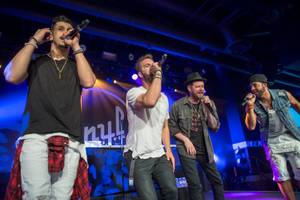Earl Sweatshirt is something of a mythological creature in hip-hop. Born Thebe Neruda Kgositsile, the rapper was just 16 when his 2010 eponymous debut mixtape shocked the world. It showcased a brash, depraved kid rapping about things no teenager should. He killed cops and women, did drugs and shouted homophobic slurs as if his raps were lifted from Eminem’s old rhyme book.
It might not have been PC, but Earl helped spark a youthful rebellion led by his ragtag group of misfit artists, Odd Future. They were bold, audacious and wildly creative. And Earl Sweatshirt was their prodigy.
His lines were crammed with dizzying rhymes and double entendres. You’d have to play songs over and over to unpack them. His mom wasn’t a fan, though, and sent him to a boarding school in Samoa for troubled boys, a move that would become the genesis of his folklore. It might have even saved his life.
As Odd Future became the most buzzed musical act, Earl Sweatshirt was nowhere to be found. Rumors swirled. Fans chanted “Free Earl” at shows. The New Yorker ran an 8,000-word feature in 2011 titled “Where’s Earl?” that, through his mother, confirmed his whereabouts. “There is a person named Thebe who pre-existed Earl. … That person ought to be allowed to explore and grow, and it’s very hard to do that when there’s a whole set of expectations, narratives, and stories that are attached to him,” she told the magazine.
Nine years later, it’s clear that Earl Sweatshirt’s adolescent rage was about more than shock-rap antics; it was born of unprocessed pain. Today, his music paints a portrait of a young man trying to find air amid depression, anxiety and emotional trauma, rather than drowning in it. When he returned with 2013 studio LP Doris, Earl Sweatshirt wasn’t a kid anymore. There was a dark, post-puberty baritone in his voice. The lyrics were no longer a misguided fantasy. They were piercingly real. “It’s probably been 12 years since my father left, left me fatherless/And I just used to say I hate him in dishonest jest/When honestly I miss this ni**a, like when I was 6/And every time I got the chance to say it I would swallow it,” he raps on “Chum.”
His 2015 follow-up, I Don’t Like Sh*t, I Don’t Go Outside, was a record for recluses, yet he sounded more confident and self-aware than ever. He’s even less bothered on his latest LP, Some Rap Songs. Playing more like a dusty bedroom demo, it features short, crackly loops and more masterful musings. It’s somber and revelatory. “I spent my whole life depressed/Only thing on my mind was death/Didn’t know if my time was next,” he discloses on “Nowhere2go.”
Earl Sweatshirt’s music isn’t for everyone. It’s purposely anti-pop, designed for fellow hermits to commiserate with in solitude. He likely won’t ever be the star many hoped for when they first heard him nine years ago. But he seems fine with that. And his fans—who need his voice of reason and lived experience now more than ever—seem fine with it, too.
EARL SWEATSHIRT April 26, 8 p.m., $30. Vinyl, 702-693-5000







